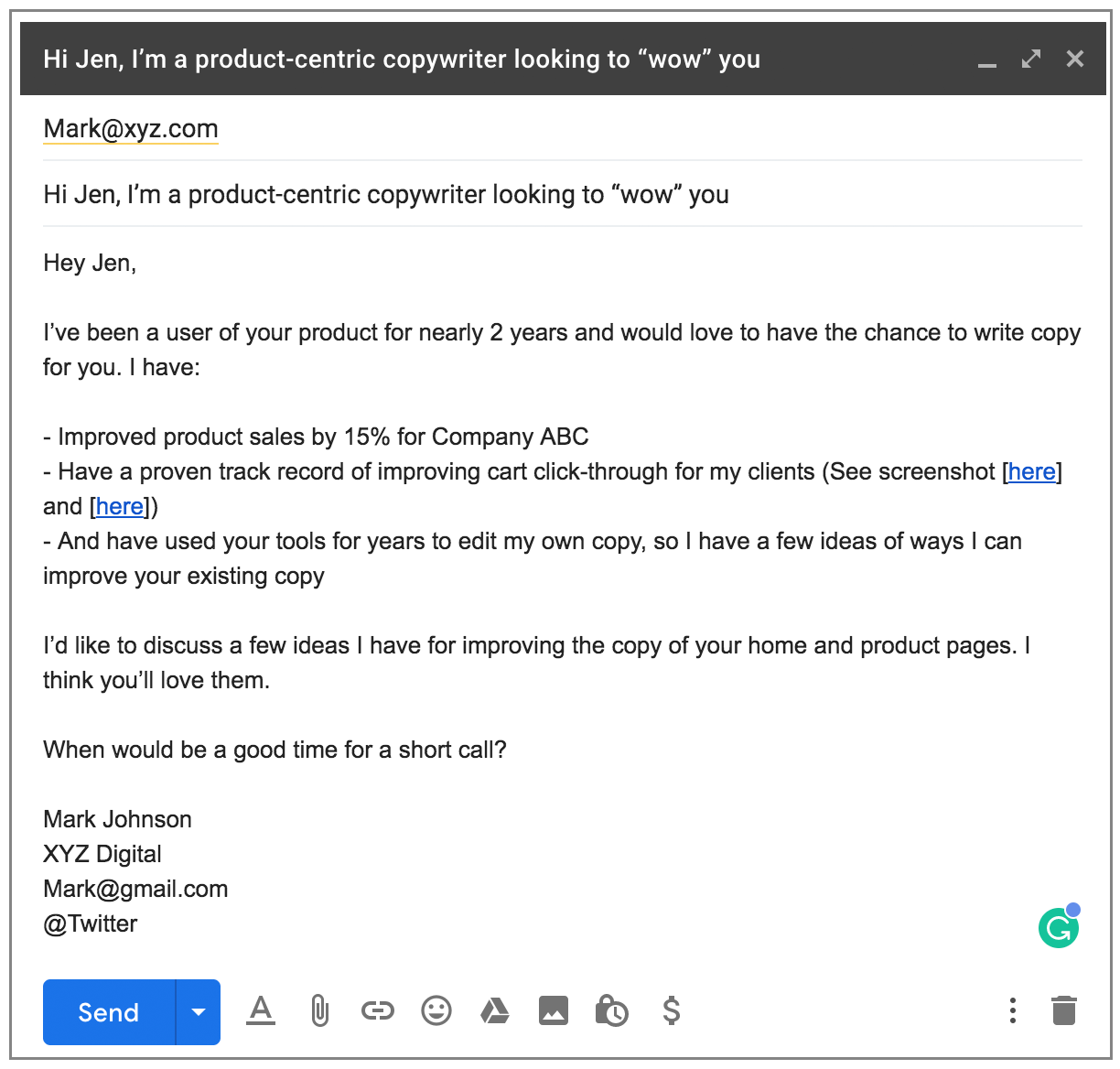Yes, you can email market to your own customers. But there are rules you must follow.
Understanding these rules is crucial to keep your customers happy and your business compliant. Email marketing is a powerful tool. It’s a direct way to reach your customers. You can inform them about new products, special offers, or updates. But, it’s important to follow the law and respect your customers’ privacy.
This means getting their consent and offering a clear way to opt out. In this blog post, we will explore the key rules and best practices for email marketing to your own customers. This will help you build trust and maintain a positive relationship with your audience. Let’s dive in!
Introduction To Email Marketing
Email marketing is a powerful tool for businesses. It allows direct communication with customers. Businesses can build relationships, offer promotions, and gather feedback. This method is cost-effective and can reach a broad audience. Understanding email marketing basics is essential for success.
Importance Of Email Marketing
Email marketing is crucial for any business. It helps in building trust. Customers prefer companies that communicate regularly. Email marketing keeps your brand on their minds. It also allows personalized communication. This makes customers feel valued.
Email marketing is measurable. You can track open rates and click-through rates. This data helps improve future campaigns. It also integrates well with other marketing strategies. Social media and email campaigns can work together. This boosts overall marketing efforts.
Benefits For Businesses
Email marketing offers numerous benefits. First, it is cost-effective. Sending emails is cheaper than traditional advertising. Small businesses find this particularly useful. It also has a high return on investment. Studies show it outperforms many other marketing channels.
Email marketing is also highly targeted. You can segment your email list. This allows sending specific messages to different groups. Personalization increases engagement. Customers are more likely to respond to tailored content.

Credit: www.byemilyjane.com
Legal Aspects
Email marketing is a powerful tool for businesses. But it’s crucial to follow the law. Ignoring legal aspects can lead to fines and damage to your reputation. Here, we will discuss two key regulations: CAN-SPAM Act and GDPR Compliance. Understanding these will help you stay compliant and maintain trust with your customers.
Understanding Can-spam Act
The CAN-SPAM Act is a law that sets rules for commercial emails. It gives recipients the right to stop receiving emails from you. It also outlines penalties for violations. Here are the main requirements:
- Don’t use false or misleading header information.
- Don’t use deceptive subject lines.
- Identify the message as an ad.
- Tell recipients where you’re located.
- Tell recipients how to opt-out of receiving future emails.
- Honor opt-out requests promptly.
- Monitor what others do on your behalf.
Failing to comply with the CAN-SPAM Act can result in hefty fines. So, always ensure your emails are honest and clear.
Gdpr Compliance
The General Data Protection Regulation (GDPR) applies to businesses that handle the data of EU citizens. It has strict rules about how you collect, store, and use personal data. Here are some key points:
- Get clear consent before sending emails.
- Provide easy ways to withdraw consent.
- Be transparent about how you use data.
- Ensure data is stored securely.
- Delete data upon request.
GDPR compliance is crucial. Non-compliance can lead to severe fines and loss of customer trust. Always respect your customers’ data and privacy.
Building An Email List
Building an email list is the first step in creating a successful email marketing campaign. It allows you to reach your customers directly and keep them engaged with your brand. Below, we will explore how to build an email list effectively.
Collecting Emails
Collecting emails is crucial for any business. You need to gather your customers’ contact information. This helps you send them updates, offers, and news about your products or services.
There are several ways to collect emails:
- Sign-up forms on your website
- In-store sign-ups
- Social media promotions
- Contests and giveaways
Use clear and simple forms. Ask for only the necessary information. This makes it easy for customers to sign up.
Opt-in Strategies
Having a solid opt-in strategy ensures that your customers willingly subscribe to your emails. This helps you build a list of engaged and interested customers.
Here are some effective opt-in strategies:
- Offer value: Provide a free eBook, discount, or exclusive content in exchange for an email.
- Use pop-ups: Timed or exit-intent pop-ups can capture emails without being intrusive.
- Create engaging content: Blog posts, videos, and infographics can attract sign-ups.
- Leverage social proof: Show testimonials or subscriber counts to build trust.
Always ensure that your opt-in process is transparent. Inform your customers what they will receive by subscribing. This builds trust and reduces the chance of unsubscribes.

Credit: www.gmass.co
Crafting Effective Emails
Engaging your customers through email can be a powerful tool. But, it’s important to craft emails that resonate and deliver value. This involves careful attention to subject lines and personalization. Let’s explore these aspects in detail.
Subject Line Tips
The subject line is the first thing your customer sees. It should grab their attention instantly. Keep it short and direct. Aim for a maximum of 50 characters. Use action verbs to create urgency. Words like “discover” or “learn” can be effective. Avoid using all caps or too many exclamation points. These can make your email seem spammy. Testing different subject lines can help you find what works best.
Personalization Techniques
Personalization can make your emails more engaging. Start by using the customer’s name in the greeting. This simple touch can make a big difference. Segment your email list based on customer behavior. This allows you to send more relevant content. For example, if a customer recently made a purchase, send them related product recommendations. Personalization extends to the email content too. Tailor your messages based on the customer’s interests and past interactions.
Design And Content
Designing and creating engaging content for your email marketing can be a challenge. You want to grab your customers’ attention and keep them interested. This section will focus on two key areas: email templates and engaging content ideas.
Email Templates
Using well-designed email templates saves time and ensures consistency. A good template includes these elements:
- Header: Contains your logo and a clear subject line.
- Body: Main content area with images and text.
- Footer: Contact information and unsubscribe link.
Here are some tips for creating effective email templates:
- Use a clean, simple layout.
- Ensure your template is mobile-friendly.
- Include clear calls to action (CTAs).
Consider using a table to organize your content. This helps make it easier to read.
| Element | Description |
|---|---|
| Header | Logo and subject line |
| Body | Main content with images |
| Footer | Contact info and unsubscribe link |
Engaging Content Ideas
Creating engaging content keeps your customers interested. Here are some ideas:
- Product Updates: Inform customers about new products or features.
- Special Offers: Share discounts or promotions.
- Customer Stories: Highlight customer testimonials or case studies.
- How-to Guides: Provide helpful tips or tutorials.
These ideas not only provide value but also encourage interaction.
Make sure your content is relevant and personalized. Use your customer’s name and past purchase history. This makes the email feel more personal and engaging.
By focusing on design and content, you can create emails that your customers will look forward to receiving.
Segmentation And Targeting
Segmentation and targeting are vital for email marketing success. By segmenting your audience, you can create more personalized and relevant content. This leads to higher engagement and conversion rates.
Segmenting Your Audience
Segmenting your audience means dividing your customers into smaller groups. These groups share common characteristics. This could be based on demographics, purchase behavior, or engagement levels.
Here are some ways to segment your audience:
- Demographics: Age, gender, location.
- Purchase Behavior: Purchase history, average order value.
- Engagement Levels: Email opens, clicks, website visits.
Use these segments to tailor your email content. This ensures the right message reaches the right people.
Targeted Campaigns
Targeted campaigns use segmented data to send specific messages. This increases the chances of your emails being opened and read.
Benefits of targeted campaigns include:
| Benefit | Description |
|---|---|
| Higher Engagement | Personalized emails are more likely to be opened. |
| Better Conversion Rates | Relevant content leads to more purchases. |
| Increased Customer Loyalty | Customers appreciate tailored content, increasing loyalty. |
Examples of targeted campaigns:
- Welcome emails for new subscribers.
- Product recommendations based on past purchases.
- Re-engagement campaigns for inactive customers.
Remember, the key is to make your emails relevant and valuable. This will keep your customers engaged and interested in your brand.
Measuring Success
Measuring success in email marketing is essential. It helps you understand how your emails perform. You can then make improvements based on these insights. Two key metrics to focus on are open rates and click-through rates.
Open Rate Analysis
Open rate tells you how many people opened your email. A higher open rate means your subject line was effective. It’s the first impression your email makes. If your open rate is low, try changing your subject lines. Make them more engaging and relevant to your audience.
Click-through Rate Insights
Click-through rate (CTR) shows how many people clicked on links in your email. A high CTR indicates your content was interesting and valuable. It also means your call-to-action was clear and compelling. If your CTR is low, consider revising your email content. Ensure your links are easy to find and relevant.

Credit: jennakutcherblog.com
Avoiding Common Mistakes
Email marketing to your own customers can be very effective. But there are common mistakes you should avoid. These mistakes can harm your campaign’s success. Let’s look at a few of them.
Spam Filters
Spam filters can block your emails. This happens if your content looks like spam. Always use clear and relevant subject lines. Avoid using too many exclamation marks or all capital letters.
Also, do not use too many images. Some filters flag emails with lots of images. Keep a balance between text and images.
Finally, always provide a clear way to unsubscribe. This shows respect for your subscribers. It also helps avoid spam complaints.
Overloading Subscribers
Do not send too many emails. Overloading subscribers can lead to unsubscribes. Space out your emails. Find the right frequency for your audience.
Make sure each email adds value. Share useful information or special offers. Do not email just for the sake of it.
Keep track of your open and click rates. This helps you understand what your audience likes. Adjust your strategy based on this feedback.
Expert Tips
Are you thinking about email marketing to your own customers? To ensure success, follow these expert tips. They will help you improve deliverability and maximize engagement. Let’s dive into the details.
Improving Deliverability
Deliverability is key to successful email marketing. Here are some tips:
- Use a recognized email service provider (ESP): This ensures your emails are not marked as spam.
- Authenticate your email domain: Use SPF, DKIM, and DMARC to prove your emails are legitimate.
- Clean your email list regularly: Remove inactive subscribers to avoid high bounce rates.
- Monitor your sender reputation: Avoid spam complaints by sending relevant content.
Maximizing Engagement
Engaging content keeps your customers interested. Follow these tips:
- Personalize your emails: Use the customer’s name and tailor content to their interests.
- Craft compelling subject lines: Keep them short and intriguing to boost open rates.
- Segment your email list: Group customers by behavior or preferences for targeted campaigns.
- Include a clear call-to-action (CTA): Guide your customers on what to do next.
- Optimize for mobile: Ensure your emails look good on all devices.
Following these expert tips can help you effectively email market to your customers. Aim for better deliverability and higher engagement.
Frequently Asked Questions
Can I Email My Own Customers?
Yes, you can email your own customers. Ensure they have opted in to receive your emails.
Do I Need Consent To Email Customers?
Yes, you need explicit consent from customers before emailing them. This ensures compliance with privacy laws.
What Are The Benefits Of Email Marketing?
Email marketing helps build relationships, increase sales, and keep customers informed about your products or services.
How Often Should I Email My Customers?
Email your customers regularly but avoid overwhelming them. A weekly or bi-weekly email is often effective.
Conclusion
Email marketing to your own customers is a smart move. It helps build relationships. Keep your emails relevant and valuable. Respect privacy and follow legal guidelines. Consistency is key for success. Always provide an easy way to unsubscribe. This keeps trust intact.
Monitor your results and adjust strategies. Your customers will appreciate the effort. Happy emailing!


Leave a Reply